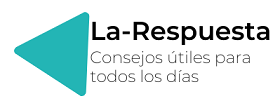Como hacer preguntas y respuestas con el verbo to be?
¿Cómo hacer preguntas y respuestas con el verbo to be?
Ejemplos respuestas cortas:
- Am I a good student? Yes, you are. (¿Soy un buen estudiante?
- Are we old friends? No, we aren’t.
- Is he a student? Yes, he is.
- Is the pencil on the desk? No, it isn’t.
- Is she absent from class today? Yes, she is.
- Are they friends? No, they aren’t.
- Is the weather good? Yes, it is.
- Is the sky clear? No, it isn’t.
¿Cómo hacer verbo to be?
Pero primero lo básico, veamos la conjugación del to be verb. En presente, el verbo se conjuga I am, you are, he/she/it is, y con los pronombres plurales we, you, they se conjuga con are. En el tiempo pasado, la mayoría de los pronombres se conjugan con were excepto I, he, she, it que se conjugan con was.
¿Cuándo se utiliza IS en pregunta?
«Am, Is, Are Questions»
- * I am: yo soy o estoy.
- * He is: él es o está
- * You are: Tú eres o estás.
¿Cuándo se usa el IS y Are?
‘There are’ se utiliza con los sustantivos contables en plural….¿Como usar el presente simple?
| There is a book | Hay un libro |
|---|---|
| There are some books | Hay unos libros |
¿Cómo hacer preguntas con is y are?
Preguntas en inglés usando Am/Are/Is – Am I right? / Are you sure? / Is she here?…Are / Aren’t (you, they, we) ?
- play.
- Are you a doctor?
- Are you practicing a lot?
- Aren’t we going to the university now?
- Are John and Paul the famous rock singers?
¿Cómo hacer preguntas con questions words?
Where are you?(¿Dónde estás?)…Open Questions (Preguntas abiertas)
| Pronombre interrogativo | Ejemplos |
|---|---|
| Who…? ¿Quién…? | Who is he? ¿Quién es él? |
| Whose…? ¿De quién…? | Whose bag is this? ¿De quién es esta bolsa? |
| Why…? ¿Por qué…? | Why are they here? ¿Por qué están aquí? |
| Which…? ¿Cuál…? | Which car is his? ¿Cuál es su coche? |
¿Cómo se hacen preguntas con Wh en pasado simple?
10 Preguntas en Pasado Simple en Inglés con WH
- Where did you buy that taco?
- What time did you get up on holidays?
- When did the accident take place?
- Who said that lie?
- What things did you like to do last year?
- Which bike did you drive this morning?
- How much did your sister pay for the ring?
- Where did she go during her vacation?
¿Cómo se estructura una pregunta utilizando questions words?
3. Las diferentes question words
- WHO? ¿Quién? ¿A quién?
- WHAT? ¿Qué? ¿Cuál?
- WHEN? ¿Cuándo? Para preguntar «en qué momento» o período temporal tiene lugar un acontecimiento.
- WHERE? ¿Dónde? Para preguntar «en qué lugar» ocurre la acción.
- HOW? ¿Cómo?
- WHY? ¿Por qué?
- WHOSE? ¿De quién?
- WHICH? ¿Cuál?
¿Qué son las preguntas WH?
Preguntas WH en inglés. Se llaman preguntas WH a aquellas que inician con pronombres interrogativos cuyas primeras dos letras son precisamente wh (excepto How), por ejemplo, who, what, when, etc. Sirven para obtener información sobre un lugar, el nombre de una persona, una hora o día, o la razón de algo.
¿Qué son las Wh questions y para que se usan?
Las Wh questions, son todas aquellas preguntas en inglés que inician con : Which, When, Why, Who, What, Whose, Where, Who y How. Usamos las palabras con Wh, para realizar preguntas acerca de un determinado tema en especifico, éstas pueden traducirse como: Cual, Cuando, Por qué, Cuando, Que, Como, Donde…
¿Cuándo se utiliza Who What Where When Why?
Cómo hacer las preguntas con who, what, where, when, why y how
- Who = quién. Usamos who cuando la respuesta es una persona.
- Where = dónde. Usamos where cuando la respuesta es un sitio.
- When = cuándo. Usamos when cuando la respuesta es un momento.
- Why = por qué Usamos why cuando la respuesta es una razón.
¿Qué son las Wh questions Brainly?
Wh Questions son un grupo de preguntas que se caracterizan porque en su nombre tienen las letras «wh-» al inicio, excepto por uno de sus casos. Las Wh Questions son: What : qué o cuál. EJEMPLOs: what’ (‘qué’).
¿Qué son las partículas interrogativas WH en inglés y su uso?
Las partículas interrogativas en inglés son palabras que usamos para demandar una información. What, who, where, when… Estas partículas no se te van a resistir si sigues leyendo. Es importante que controles su uso y su significado.
